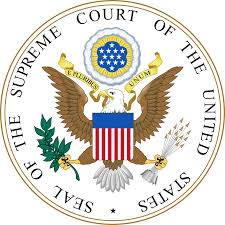
This post explains the procedures for making a jury trial demand—the process for a party to advise the court and the other parties that the party is asserting its right to a jury trial. Remember, first, that the right to a jury trial is separate from the procedures for invoking that right. The right to a jury trial is controlled by the Seventh Amendment, which itself only “preserves” the right to a jury trial as it existed in common law at the time of its enactment in 1791. Rule 38(a) similarly “preserves” the right as declared in the Seventh Amendment. Although I’ll do another post on the right to a jury trial, it basically extends to claims for money damages and doesn’t attach to claims for equitable relief.
Form of the Demand
Even for claims that qualify for a jury trial under the Seventh amendment, however, the right to actually obtain a jury trial is not absolute. Rather, that right must be affirmatively invoked by making a timely jury trial demand. The demand may be a separate pleading or may simply be a statement in a pleading—there is no precisely required format. It should not, however, be in a motion or on a civil cover sheet. See, e.g., Bogosian v. Woloohojian Realty Corp., 323 F.3d 55, 62 (1st Cir. 2003) (demand in motion not effective); Wright v. Lewis, 76 F.3d 57, 59 (2d Cir. 1996) (demand on a civil cover sheet effective if the cover sheet is served). Once one party has made a jury trial demand, other parties may rely on that demand and do not need to make their own separate demand.
General Demands; Timing and Waiver
There are two types of jury trial demands, general and specific. A general demand seeks a jury trial for all issues as to which the demanding party has a right to a jury trial. A general demand may specify that it extends to all claims with a jury trial right, but any jury trial demand not explicitly limited to specific claims will be deemed a general demand. See Wilson v. Pan NorCal, LLC, 2024 WL 54157, at *2 (E.D. Cal. 2024). A general jury trial demand will extend to claims not yet asserted at the time of the demand so long as they qualify for a jury trial. See Shields of Strength v. United States Dep’t of Def., 2024 WL 5103412 (E.D. Tex. 2024).
A jury trial demand must be made within 14 days of the last pleading directed to the issues subject to the demand. The right to a jury trial is waived as to any demand not asserted within this time period. Typically, the last issue pleading directed to an issue is the answer, although counterclaims, crossclaims, and third-party claims may constitute pleadings directed to an issue. A notice of removal is not a pleading. In re MMA L. Firm, PLLC, 2024 WL 4656322, at *2 (Bankr. S.D. Tex. 2024).
Specific Demands
Alternatively, Rule 38(c) allows a party to designate specific claims or issues as to which it is demanding a jury trial. A specific jury trial demand must also be filed within 14 days of the last pleading directed to the issues designated in the demand, but the individual demand triggers and additional right for other parties. If one party makes a demand as to only certain issues in the action, other parties then have 14 days from service of the specific demand to make their own demands for a jury trial as to any issues not within the first demand.
Removed Cases
The procedures for jury trial demands become significantly more complicated in cases filed in state court and then removed to federal court because of the many procedural permutations relating to the manner in which the issue can develop. The parties may or may not file all the pleadings in state court prior to removal. The state’s procedural rules may or may not require the filing of a jury trial demand. If the state rules do require a demand, they may require the demand at different stages of the proceedings—New York, for example, allows demands shortly before trial. If the state rules do require a demand, that demand may or may not satisfy federal Rule 38(b). If the state rules do require a demand, a party may have made a demand in state court or no party may have made a demand in state court. With this many variables, there are countless combinations, sometimes entailing consideration of federal Rules 38 and 81, local rules, and individual judge’s standing orders, and the individual judge’s case-specific orders. See Trimble v. Fedex Off. & Print Servs., Inc., 2024 WL 182284 (N.D. Okla. 2024).
Although this issue often requires detailed jurisdiction-specific research, there are some general principles. If a party has made a proper jury trial demand in state court, no new demand is necessary. See Lutz v. Glendale Union High School, 403 F.3d 1061, 1063-64 (9th Cir. 2005). If no party demanded a jury trial in state court and all parties filed their pleadings in state court, any party may demand a jury trial within 14 days after the case is removed. See Macsherry v. Sparrows Point, LLC, 973 F.3d 212, 227 (4th Cir. 2020). The 14 days are measured from filing the removal notice in the case of the plaintiff and from service of the notice for all other parties. If state law does not require an express jury trial demand, the Rules do not require one in the removed action unless the court so directs. See Bruns v. Amana, 131 F.3d 761, 762 (8th Cir. 1997). If a party demands a jury in the state court proceedings and the demand does not meet the state requirements but satisfies federal requirements, the federal court can accept it. See Wyatt v. Hunt Plywood Co., Inc., 297 F.3d 405, 415 (5th Cir. 2002).
If you want a jury trial in a removed case, you can be reasonably sanguine if someone made a jury trial demand before removal. If not, the safest and easiest course of action is to file a demand within 14 days of the removal.
Amended Complaints
The rules above describe the procedures for making jury trial demands as to claims in the original complaint. The courts have developed a set of rules for assessing whether an amended complaint triggers a new right to make a jury trial demand. The waiver rules are triggered by the first pleading that raises an issue or claim. Thus, for issues raised in the original complaint, an amended complaint including those same issues does not resuscitate the right to a jury trial for those issues. Conversely, an amended complaint raising a completely new claim does create an opportunity to make a jury demand for those new issues. See Smith v. Urb. Oil & Gas Grp. LLC, 2024 WL 1726284 (W.D. La. 2024).
Whether a claim or issue is “new” for these purposes depends on whether the issue raises new facts, not new legal theories. Thus, for example, if a homeowner brought a negligence claim against a neighboring factory for releasing contaminated liquid onto the homeowner’s property, claims for nuisance or trespass asserted in an amended complaint would not be considered new claims and would not create a new right to make a jury trial demand.
Withdrawing a Demand
Once made, a jury trial demand may not be withdrawn without the consent of all parties or leave of court. Rule 38(d) allows a party to make a motion to withdraw a demand, but such motions are almost never granted unless there wasn’t properly a jury trial right in the first place or the cases has changed such that the right to a jury trial no longer exists. See Jackson v. N. Caddo Hosp. Serv. Dist., 2024 WL 897966, at *3 (W.D. La. 2024).
Motion for a Jury Trial
Conversely, if the parties have failed to make a timely jury trial demand and have thus waived their right to a jury trial, they may still file a motion under Rule 39(a) asking the court to conduct a jury trial. Although the decision as to whether to grant a Rule 39(a) motion for a jury trial is in the court’s discretion, most courts have a strong presumption in favor of granting such motions. Thus, a party who wants a jury trial but who has inadvertently missed the deadline for making a jury trial demand is likely to be able to obtain a jury trial by motion unless the case is about to go to trial or the judge believes it is terribly complicated or otherwise poorly suited for a jury. See Trimble v. Fedex Off. & Print Servs., Inc., 2024 WL 182284 (N.D. Okla. 2024); Smith v. Urb. Oil & Gas Grp. LLC, 2024 WL 1726284 (W.D. La. 2024).
******
Steve is one of the authors of The Federal Litigator, a monthly publication from Thomson Reuters that reports on cases of general interest to those who practice in the federal courts. Each fall, The Federal Litigator reports on amendments to the federal court rules. This article is an excerpt from the January 2025 edition of The Federal Litigator that is reprinted with the publisher’s permission (© 2025 Thomson Reuters). Further reproduction of any kind is strictly prohibited. For further information about this publication, please click here, or call 800.328.9352. Individual case summaries can be accessed through Westlaw. Steve is also one of the authors of the Federal Civil Rules Handbook, an annual publication from Thomson Reuters containing detailed, practical commentary providing a blueprint for the application of the Federal Rules of Civil Procedure and related jurisprudential concepts. To purchase the Handbook, please click here.



